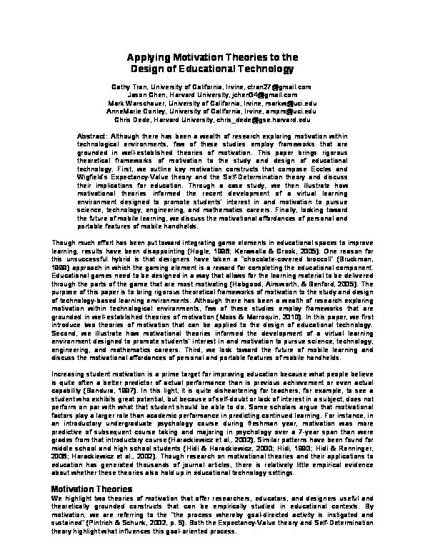
Although there has been a wealth of research exploring motivation within technological environments, few of these studies employ frameworks that are grounded in well-established theories of motivation. This paper brings rigorous theoretical frameworks of motivation to the study and design of educational technology. First, we outline key motivation constructs that compose Eccles and Wigfield’s Expectancy-Value theory and the Self-Determination theory and discuss their implications for education. Through a case study, we then illustrate how motivational theories informed the recent development of a virtual learning environment designed to promote students’ interest in and motivation to pursue science, technology, engineering, and mathematics careers. Finally, looking toward the future of mobile learning, we discuss the motivational affordances of personal and portable features of mobile handhelds.
Available at: http://works.bepress.com/jasonchen/25/
